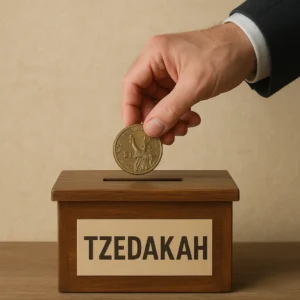Two poor brothers would regularly visit a wealthy man who gave each of them a hundred-dollar bill. After a long absence, one brother returns alone. When asked about the other, he shares that his brother passed away two months earlier. The rich man, saddened, gives the remaining brother his usual hundred dollars. But then the man does something unexpected: he asks for his late brother’s portion as well. The rich man is puzzled—”Why should you receive your brother’s share?” The poor man answers plainly: “I’m his brother.”
This short exchange leads into a deeper teaching. The Torah says that turning away from someone in need is like worshipping idols. That seems extreme. Isn’t stinginess just a failure between people? How can it be compared to idol worship, a sin between a person and God?
The answer is found in how the Torah views giving. As it says in Divrei Hayamim: “Everything is from You, and it is from Your hand that we have given You.” Nothing truly belongs to us. Even the act of giving is only returning what we were given. According to the Rosh, when we make gold and silver the focus of our lives, that’s where idolatry begins.
True giving means recognizing that we’re only holding onto our wealth temporarily, that we’re caretakers, not owners. When we use what we have to help others and to serve Hashem, we affirm that the world has a purpose, and that our lives do too. Giving becomes a way of saying: “I know this isn’t about me. I’m part of something greater.”
That’s our inheritance. And that’s our legacy.

